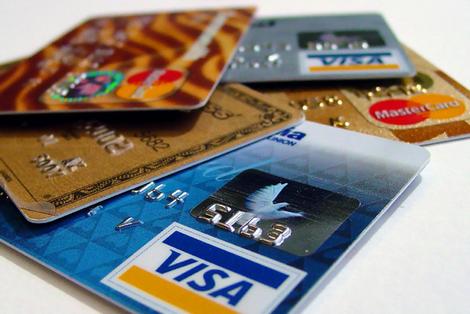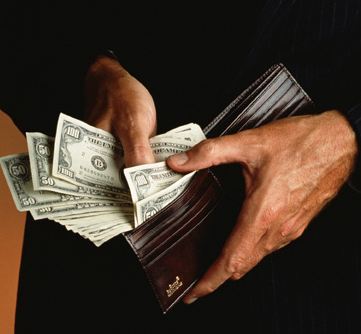How to have good credit

How to have good credit!
What’s in your wallet?
You’ve seen those commercials with Alec Baldwin and Jimmy Fallon.
Haven’t seen them? Well you at least have a credit card or at least know somebody who does.
If you don’t know anyone that does, you must be in Bhutan or some nation that just got introduced to television not too long ago, and in that case you probably don’t even have a wallet anyway.
If you are like me, you have more credit cards than you care to admit.
Credit accounts have become so ubiquitous these days from gas station cards, department store cards, bank and credit union cards, and of course student, auto, and home loans that I could bet you, whoever is reading this, fits into at least one of these categories.
Because using credit has become so common, I doubt most of us really know how to use them to work for us, and not against us. Finance experts stress that using credit cards correctly can make a huge difference in your pocketbook at the end of the day.
Top Five Ways to use Credit for Evil
- Enjoy life now, worry about the bills later.
- Using cards is safer than carrying cash so, it just makes sense.
- As long as I keep transferring balances to a new card with a zero percent interest offer, why not?
- Credit cards help me keep track of how much I spend on gas or on clothes depending on the card.
- The more I use it, the more “cash back” I get at the end of the month.
Top Five Ways to use Credit for Good
- Enjoy life now, but plan ahead so you aren’t in debt later.
- Only carry a little cash at a time, or use a debit card for gas or daily purchases.
- If we keep opening and closing accounts, our credit score gets lowered.
- Use a free service like mint.com to keep track of where all your money is spent.
- Reward programs like “cash back” are only worth it if you pay off your cards in full each month.
I recommend to get a credit card as soon in life as possible (when you turn 18), so that you can begin the lifelong journey of building a good credit score.
Why Do We Need a Good Credit Score?
I look at it this way: The higher your credit score, the bigger or better of a house you can buy when it comes time to make such big, life-altering purchases. Same goes for buying a car. Even if you only want to buy a cheap used car, you’ll get a cheaper, happier loan as the result of having a high credit score.
It’s like when you are shopping for gas. You see that the gas station across the street is 20 cents per gallon cheaper so, you would be a fool to go to the other one, right? If you have two different loans, and one will save you $40,000 over a 30 year period, then which one would you choose? So it turns out that the easiest way to get that cheaper loan is to have good credit and if you are me, you look at saving $40,000 as a pretty significant thing.
What Exactly is the Credit Score?
I will explain what this number really means and then later a way you can obtain your score for free whenever you want.
General idea:
The average credit score in the U.S. is around 675.
A credit score of 720 or more means you have excellent credit, and should have little trouble qualifying for loans and other credit-related products.
A credit score between 680-719 means you have good credit and probably won’t have too many loan or credit-qualifying issues, but may not qualify for the best available interest rates.
A credit score between 620-679 will prompt most lenders to take a closer look at how you’ve handled your past credit use and your overall financial health. But you may still have a pretty good chance of qualifying for the credit you want.
Scores between 570-619 are considered higher risk, and will immediately take you out of the running for some types of loans.
Any credit score below 570 will seriously limit your ability to access loans and credit.
Source: DailyFinance
Late payments are the single-most common factor that hurts credit scores! All the finance gurus likely do one thing when it comes to bill payments:
Automate your payments.
You can set these automated systems for whatever date you like so that you get your paycheck first, which is how most people often set it up. So if you get paid twice per month, you can set some bills to be paid after the first paycheck and the rest to be paid after the second one.
The credit score is also known as the FICO score.
- Thirty-five percent of your FICO score is determined by your payment history. On-time payments build your score. Late payments hurt.
- Thirty percent of your FICO score is determined by comparing the amount you owe, to the amount of credit you have available. Lenders are wary of people using too much credit, as statistics show they’re more likely to miss payments.
- Fifteen percent of your FICO score is based on the length of your credit history. There’s a myth that having too many accounts can hurt your credit score. In fact, it’s more important to keep your accounts open.
- Ten percent of your FICO score is determined by the number of new accounts you open. Opening a new account temporarily lowers your credit score for 12 months.
- Ten percent of your FICO score is based on the type of credit you use. Lenders like to see a mix of card accounts, because statistics have shown that having too many accounts of the same type slightly increases the risk of a person not being able to make timely payments.
The ratio of credit you use to available credit is just as important as your on-time payment history. If unpaid balances are more than 30 – 35 % of your available credit, that can lower your credit rating. Don’t carry large revolving balances on credit card accounts. Ideally, try to zero out the balance at the end of each payment period so you don’t pay interest.
Make sure your credit accounts come from different types.
Credit rating agencies divided account types into three major categories:
- Revolving accounts, which include all basic credit card accounts, both general and store cards along with home equity lines of credit.
- Installment accounts, which include auto, mortgage, home equity and student loans.
- Open accounts, which included home utility, internet, cable, and cell phone service accounts.
All credit companies are required by law to provide you with one copy of your credit report for free once a year. You’re also entitled to a free copy of your credit report any time you’re denied credit.
Under the Fair and Accurate Transaction (FACT) Act, at your request, Equifax, and each of the other 2 major credit reporting agencies, Experian and TransUnion, will provide you with one free credit report every 12 months.
Really Good Tip
When you want to know your score, you can check online for free. I recommend creditkarma.com, it is free and you can check your score every day, if you want. I check it every so often so I know where I stand in that world.
Credit cards can be awesome financial tools. They can also be the bane of our existence.
I use them for one reason and that is free airline tickets. If you don’t like to travel, use the cash back cards or you can usually use airline miles for hotel rooms, rental cars, or even electronics and other merchandise.
I try to use credit cards to give me value, not to take out a loan.
So the next time a celebrity asks you “what’s in your wallet?” think twice about the tools you use to purchase your gas, groceries, and pay the bills. Personally, I prefer free plane tickets!





Leave a Reply